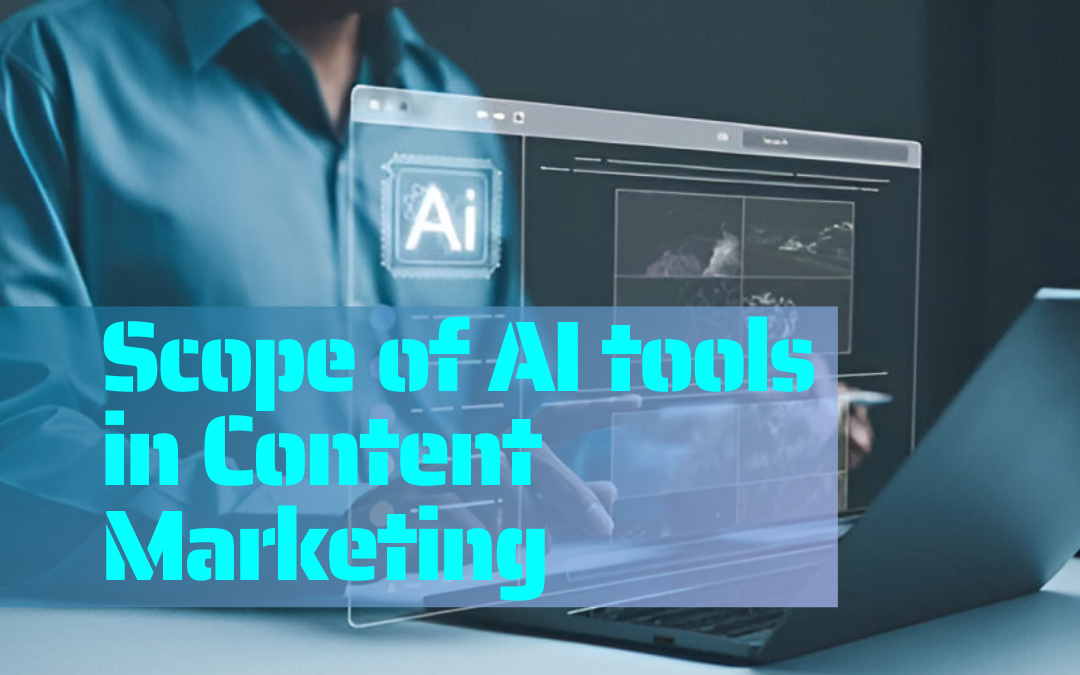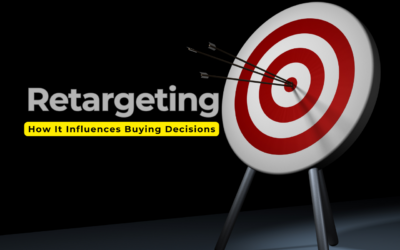Content marketing has evolved dramatically over the years, and artificial intelligence (AI) is leading the charge in reshaping how businesses approach this key marketing strategy. AI tools are no longer just a futuristic concept; they have become essential for modern content marketers, enabling them to streamline processes, personalize customer experiences, and ultimately, drive better results. In this blog, we’ll explore the wide-ranging scope of AI tools in content marketing, highlighting the key areas where AI is making a substantial impact.
1. Content Creation and Ideation
AI tools have greatly transformed content creation. Through natural language processing (NLP) algorithms, AI-powered tools can now generate high-quality, human-like content on a variety of topics. Tools like GPT-based platforms and automated writing assistants provide suggestions, generate blog posts, and even write social media captions. AI can analyze trending topics, keywords, and customer interests, helping marketers identify what type of content will resonate with their target audience.
- Example: AI tools such as Jasper or Writesonic allow marketers to generate blog ideas, create SEO-friendly content, and draft entire articles in a fraction of the time it would take a human.
2. SEO Optimization
Search engine optimization (SEO) is at the core of any successful content marketing strategy. AI tools play a pivotal role in optimizing content for search engines by analyzing search intent, ranking factors, and keyword competition. AI-based SEO platforms provide keyword recommendations, identify gaps in existing content, and suggest ways to improve search rankings.
- Example: Tools like Clearscope and Surfer SEO help marketers create content that ranks by analyzing top-performing pages, keywords, and semantic search patterns.
3. Personalization and Customer Segmentation
AI tools enable hyper-personalization in content marketing. With access to large volumes of data, AI algorithms can segment audiences based on behaviors, preferences, and demographics, allowing marketers to deliver personalized content at the right time. This ensures that every piece of content speaks directly to the user, increasing engagement and conversions.
- Example: Tools like HubSpot and Salesforce Marketing Cloud use AI to track user behavior and deliver personalized email campaigns and content suggestions based on individual preferences.
4. Content Distribution
AI also enhances content distribution by automating the process of getting content in front of the right audience. AI tools analyze where target audiences are most active and recommend the best times and platforms to distribute content. This ensures that content reaches the intended audience efficiently and maximizes engagement.
- Example: Platforms like SocialBee and Buffer leverage AI to schedule social media posts at optimal times and tailor messaging for different audiences across various platforms.
5. Predictive Analytics and Performance Measurement
AI-driven predictive analytics tools provide marketers with data insights that predict future trends and performance. AI can analyze historical data to forecast which content topics will perform well, helping marketers make informed decisions about content strategies. Additionally, AI tools measure content performance in real time, offering suggestions for optimization based on user engagement and feedback.
- Example: Google Analytics 4 (GA4) uses AI to track user behavior and predict how content will perform based on historical trends and data patterns.
6. Content Curation and Recommendations
AI tools can curate relevant content for audiences by analyzing user behavior and preferences. This is particularly useful for brands looking to engage users with personalized content recommendations, keeping them on websites longer and increasing the likelihood of conversions. AI-driven recommendation engines can suggest blogs, videos, or product pages tailored to individual users.
- Example: Platforms like Outbrain and Taboola use AI-powered recommendation systems to suggest related content, boosting engagement and dwell time on websites.
7. Automated Customer Support and Chatbots
AI-driven chatbots have become integral to content marketing, especially in customer support and lead nurturing. These AI tools engage with visitors in real-time, answer queries, and guide users through the buying process. By providing instant assistance and personalized responses, AI chatbots enhance the customer experience and increase the chances of conversions.
- Example: Tools like Drift and Intercom use AI to create chatbots that deliver real-time customer support and content suggestions based on user questions.
8. Video and Visual Content Creation
Video content is a critical component of modern content marketing strategies, and AI is playing a crucial role in video production and editing. AI-powered video tools can automatically generate video scripts, edit footage, and even personalize video content for different audience segments. AI also helps in creating visual content, such as infographics and dynamic social media graphics.
- Example: Tools like Lumen5 and Animoto use AI to turn text-based content into engaging videos by automatically matching visuals and scripts.
9. Content Moderation and Quality Control
Ensuring content quality and relevance is another area where AI shines. AI tools can detect grammatical errors, analyze readability, and ensure that content aligns with brand voice and tone. Additionally, AI-powered content moderation tools help filter out offensive or inappropriate content, maintaining a positive brand image.
- Example: Grammarly and Hemingway are popular AI tools used by marketers to enhance content quality by suggesting grammar improvements, stylistic changes, and tone adjustments.
10. Enhanced Creativity with AI-Generated Insights
AI tools help marketers think creatively by generating insights that may not be obvious through manual analysis. By identifying patterns in data and offering actionable insights, AI tools give marketers a fresh perspective on how to approach content creation, ensuring their strategies are innovative and data-driven.
- Example: MarketMuse uses AI to analyze content gaps and generate insights that help marketers craft well-rounded, authoritative content.
The Future of AI in Content Marketing
The future of AI in content marketing looks promising. As AI technology continues to evolve, we can expect even more advanced tools that will allow marketers to create highly personalized, relevant, and engaging content. From enhanced machine learning algorithms to more intuitive content creation platforms, AI will continue to play an integral role in helping businesses stay competitive and innovative in their content marketing strategies.
Conclusion
The scope of AI tools in content marketing is vast and growing. From content creation and SEO optimization to personalization, distribution, and predictive analytics, AI is revolutionizing the way marketers approach their strategies. As AI continues to evolve, it will become even more essential for marketers to embrace these tools to stay ahead in an increasingly competitive digital landscape. Whether you’re a seasoned marketer or just starting, leveraging AI tools in your content marketing can help you save time, improve accuracy, and drive better results.
By harnessing the power of AI, content marketing can become more efficient, data-driven, and personalized—paving the way for long-term success.












